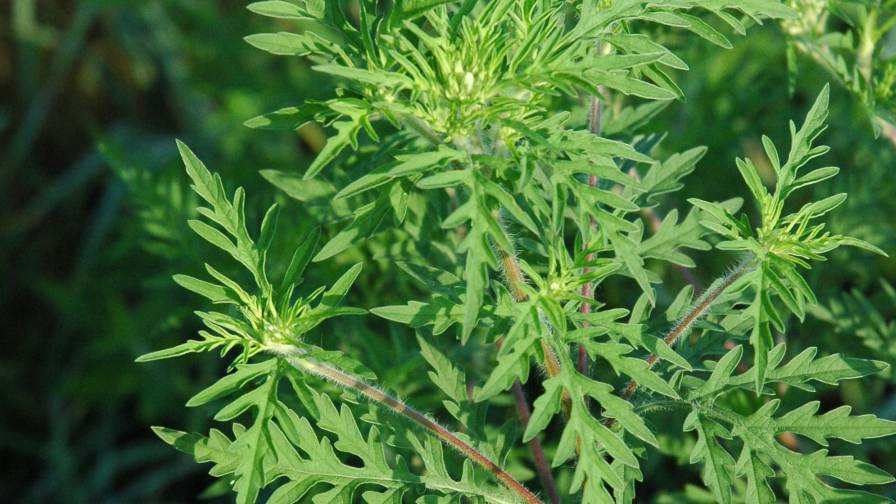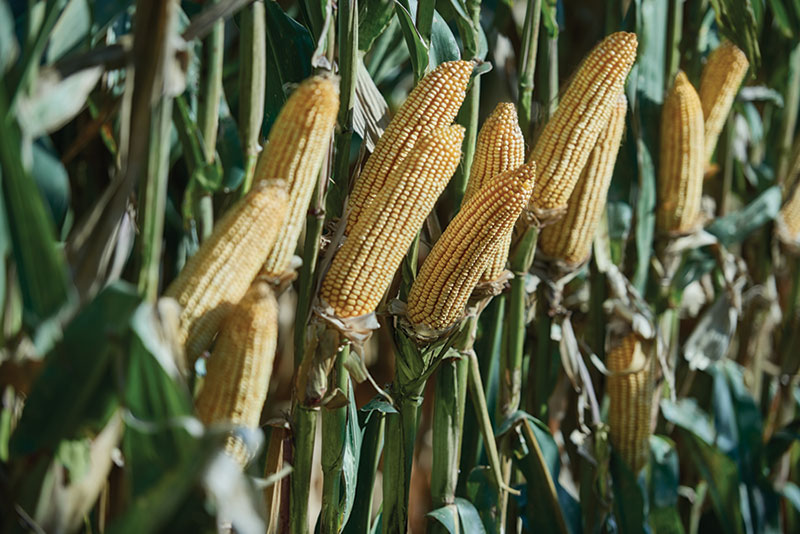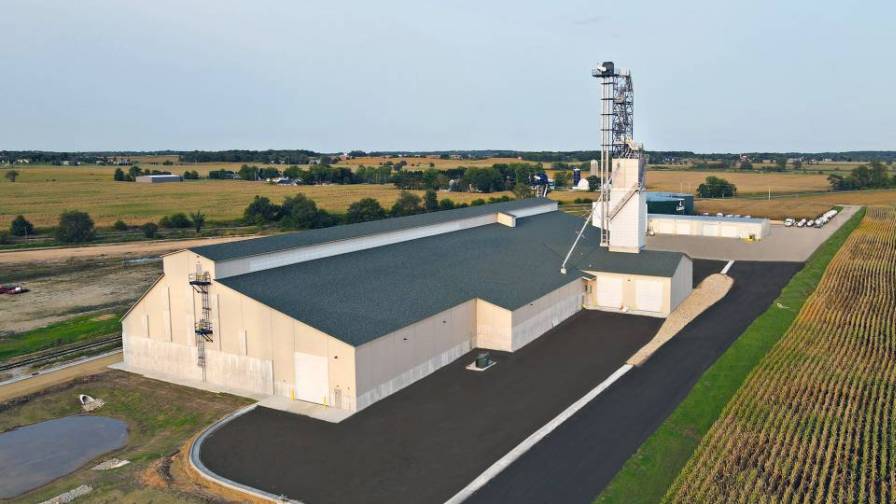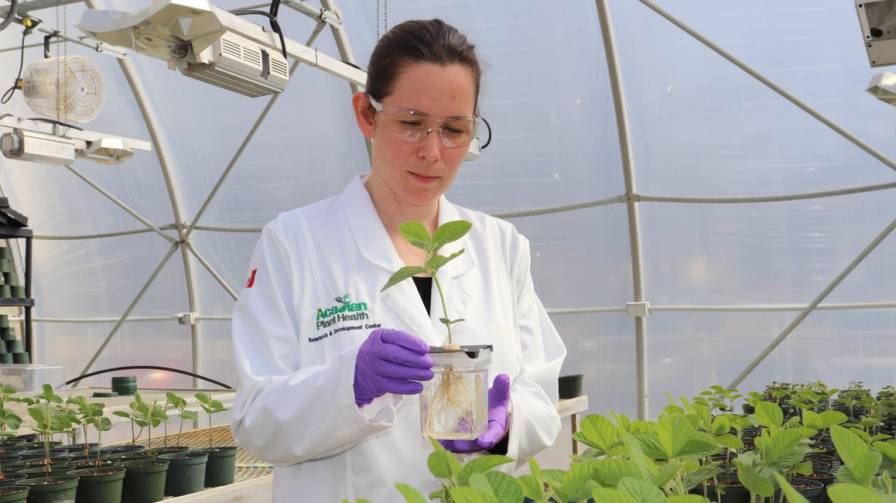Manufacturers of Biological Crop Solutions Continue to Innovate and Bring New Products to Market
The world of biologicals continues to expand and grow. And manufacturers around the world are embracing and taking advantage of interest and acceptance delivering an ever-increasing slate of products. As the outlook and approach to biological products has evolved, providers have had to “up their game” to meet the demand and expectations of end users.
Nelson Gibson, President, Acadian Plant Health, explains some of the changes he’s seen in the past few years.
“The biostimulant industry is experiencing exponential growth,” Gibson says. “We’re seeing increased demand and adoption in key markets within EMEA, APAC, and SLATAM. This continues to be driven by increased pressure to adhere to regulations like the EU Green Deal, but additionally, there is significant focus by multinational agrochemical companies to bring sustainable options to growers to augment their crop protection portfolios. Fertilizer companies are investigating the use of biostimulants in the face of new regulations demanding a reduction in fertilizer use in many countries. These factors are driving growth within this sector, even in markets that have been slow to adopt, such as North America.”
There are a variety of factors driving the growth whether it’s biostimulants, biofertilizers, or biological pesticides.
As with any (relatively new), promising and rapidly growing market segment there are a lot of new product and players coming into the market.
When asked what he would characterize the biological market, Johnny McRight’s Delta Ag suggested it is “Moving entirely too fast. Too many new companies, new mergers/buyouts, new unproven products and outrageous claims. Like any other new industry or new field, it will take a while for things to shake out to see who remains.”
“The regulatory environment is getting more challenging, making it more difficult to bring new synthetics to market or keep them on the market domestically and internationally,” explains Kelly Liberator, Director of Technical Service, AgBiome. “In addition, retailers and consumers are often looking for reduced pesticide inputs or the integration of sustainable practices.”
While the regulatory environment might be more challenging it is not entirely unwanted.
“From our standpoint the increase in regulatory changes is welcome, but the timeline to complete process and approvals from federal and state agencies has to be improved to allow technology to get to market faster,” says Chris Thrasher, Regional Manager, North America, Agrauxine. “Also, the cost of being compliant is increasing and providing obstacles for smaller start up and independent companies to compete.”
It’s not just the regulatory environment propelling the growth of biologicals. According to Chris Judd, Certis Global Vice President of Marketing, there are other issues at play.
“Ultimately there are two factors that are contributing to the growth of this sector,” he says. “Consumers all along the value chain are seeking more transparency into growing practices and are demanding more regenerative and sustainable efforts in food production. In tandem with this, growers are seeing that pests and diseases that have been treated for decades with the same conventional chemistries are developing resistance. This resistance limits the products that they can utilize to maintain efficacy. Because biologicals are derived from nature and offer multiple, specific modes of action, growers are finding them to be the key to meeting these challenges.”
While the news has been exceptionally positive for biological products just about everywhere agriculture takes place, it doesn’t mean that there have been no roadblocks.
“Just-in-Time planning and delivery has virtually disappeared,” explains Jim Shone, Borregaard’s Plant Nutrition Area Business Manager for the Americas. “The resulting costs associated with inventory builds is small compared to the revenue lost by not having product at all. We see the channel requesting product much earlier so they can have product available to deliver to the farmgate. As an ingredients manufacturer to the industry, we are forecasting demand much earlier in the cycle as formulators are now building their supplies well ahead of the growers’ application date.”
COVID-19’s impact has had additional impacts beyond the supply chain.
“The pandemic has likely slowed market adoption,” says Ted Walter, U.S. GreenSolutions Marketing Manager at AMVAC. “Biological and plant health segment needs to provide technical support and training to the channel. Unfortunately, with the pandemic, this proved difficult to provide with as grower meetings were not taking place.”
With two biological manufacturing facilities in North America the company — one in Clackamas, OR and the other in Sonora, Mexico — the company is able “to continuously supply the market without interruption, despite strong demand for our biological products globally,” Walter continues.
Brian Haschemeyer Vice President, BRANDT Discover & Innovation, knows that education of end users continues to be key.
“At the risk of sounding self-serving, trials, trials, trials,” he says. “We’re beyond the “trust me” phase of biological sales: We have to show solid science and solid results.”
Like any growing and relatively young market, there are a lot of players entering the market. Regulatory restrictions should help limit the release of ineffective (or outright useless) offerings. In addition, there will likely be a bit of a shake up in the years to come.
“As we understand what these products can and can’t do, there will be some consolidation in the market,” says Alexander Duffy, National Product Manager, Timac Agro USA, “but overall, I would expect rapid growth.”
Heliae Agriculture’s Cassidy Million expects to see that growth, as well.
“I believe this market will continue to grow, and with larger companies focusing on developing new products in the biological sector, we will continue to see new technologies and advancements occur,” says the company’s Director of Ag Science. “This drive will aid in the adaptation of these products by retailers and growers, and we hope to see new technologies and innovations coming to market to help with agricultural issues that conventional products have not been able to solve.”
At Biome Makers, that growth will come primarily through plant health.
“Biostimulants and biological products have great opportunities in all aspects of plant health but see the most potential in plant nutrition,” Adrian Ferrero Co-founder and CEO, Biome Maker. “With fertilizer prices at all-time highs, we need to harness the ability of soil microbial communities to solubilize nutrients stored in the soil in inorganic forms. Using these products can help reduce fertilizer applications while also increasing soil health and functionality.”
Innovation will be key for continued growth.
To that end, growers will have “More new products based on researching the relationships with some of the historically un-identified natural protective mechanisms,” says George Seaver, Vice President, Ocean Organics Crop. “Helping plants cope with their problems by tapping into long evolved relationships between the plants and their surroundings will only become more important.”
The growing importance of these products is evident throughout the industry in a variety of ways. Late last year Douglas Plant Health changed its name to DPH Biologicals. “The new name recognizes the century-long commitment of its parent company, Douglas Products, to deliver effective and high-quality products to its customers while more clearly focusing on expanding its biologicals product platform to deliver value to customers by sustainably increasing productivity, yield and profitability,” according to the company’s website.
Growers who what to sell their products in Europe have been embracing biological products.
“Belchim USA’s research and development efforts reflect the growing desire for sustainable solutions that will stand the test of time in an increasingly restrictive regulatory environment,” the company says. “By focusing future efforts on chemistries with a reduced chemical footprint, and collaboration with their European and other global counterparts, Belchim USA brings these innovative solutions home to farmers and superintendents in the United States who need them.”
For nearly 30 years, a relatively long time in the industry, Biodyne has been delivering biological products.
“The main goal of Biodyne USA is to promote the usefulness of the biological and sustainable approach for solving problems related to the environment,” the company says. “We are an innovative business intent on harnessing naturally occurring beneficial microbes along with complimentary technologies for use in various environmental applications. We offer products that provide economical and permanent solutions to many of today’s environmental issues.”
Recognizing that growers have both long memories and a “healthy dose of skepticism” Corteva Agriscience created a page on the company website to help with education. Titled “Discussing Biological Solutions With Your Customers,” which provides everything from a description of these products to advice on how retailers can talk with their customers about biologicals.
Tesserderlo Group is also focused on providing innovative products for retailers to deliver to their grower-customers.
“Tessenderlo Group aims at improving product, process and application technologies, exploring new applications for existing products, as well as enhancing sustainability and environmental protection,” the company says.
Editor’s note: This article originally published in October 2022.







